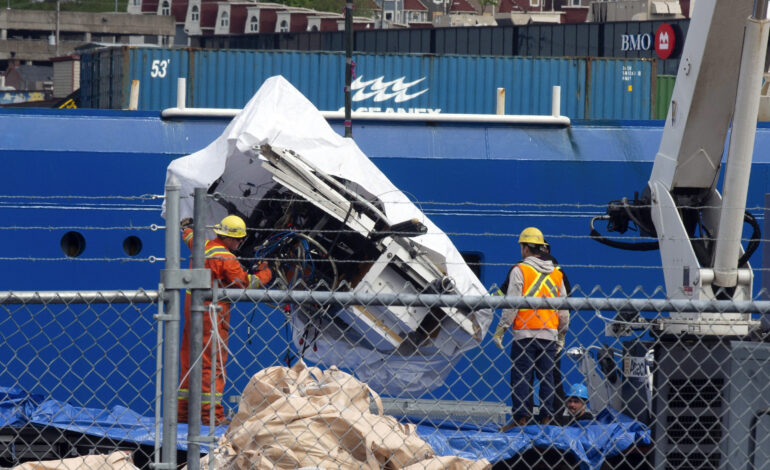Coast Guard Report Declares Titan Submersible Disaster Preventable

The United States Coast Guard has released a report stating that the implosion of the Titan submersible, which resulted in the deaths of five individuals during an expedition to the Titanic wreck site, was “preventable.” The tragic event, which captured global attention, occurred off the coast of Canada in June 2023.
According to the report, the submersible was operated by OceanGate, a private company based in Washington state. Among those who perished was Stockton Rush, the CEO of OceanGate and the pilot of the ill-fated vessel. The Coast Guard’s investigation, described as its highest level of inquiry, found significant flaws in the company’s safety protocols and practices.
Flawed Safety Procedures Identified
The report outlines a range of critical failures within OceanGate, emphasizing “glaring disparities” between the company’s stated safety protocols and its actual operational practices. It highlights that the inadequate design, certification, maintenance, and inspection processes for the Titan contributed to the disaster.
Specific findings indicate that OceanGate maintained a culture that minimized safety concerns, often downplaying or falsifying important safety information to enhance its reputation. Employees have reported a “toxic workplace culture,” where intimidation and threats of termination discouraged them from voicing safety issues.
“By strategically creating and exploiting regulatory confusion and oversight challenges, OceanGate was ultimately able to operate Titan completely outside of the established deep-sea protocols,” the report states.
Regulatory Oversight Needed
The report has sparked discussions about the necessity for tighter regulations within the emerging private deep-sea exploration industry. Jason Neubauer, from the Marine Board of Investigation, emphasized the importance of stronger oversight and clear guidelines for operators exploring new concepts in unregulated areas.
In the aftermath of the Titan disaster, OceanGate has faced numerous lawsuits, and calls for enhanced regulatory frameworks have intensified. The report, which spans over 300 pages, provides a comprehensive analysis of the events leading up to the implosion, indicating that the company ignored multiple “red flags.”
In addition to Rush, the tragedy claimed the lives of renowned French explorer Paul-Henri Nargeolet, British adventurer Hamish Harding, and two members of a prominent Pakistani family, Shahzada Dawood and his son Suleman Dawood.
OceanGate suspended its operations in July 2023, shortly after the incident. The investigation faced challenges, including the inability to subpoena a significant amount of video evidence due to the witnesses not being U.S. citizens. This limitation has raised concerns regarding the thoroughness of the inquiry.
As the deep-sea exploration sector continues to grow, the findings from this report may serve as a crucial turning point in ensuring that safety and regulatory measures are prioritized, potentially preventing future tragedies. The implications of this incident extend beyond the loss of life; they underscore the urgent need for enhanced oversight and accountability within the industry.






